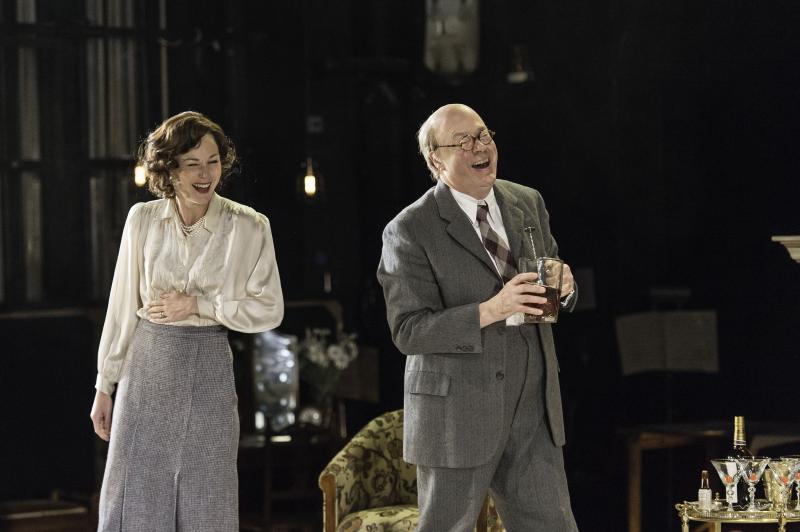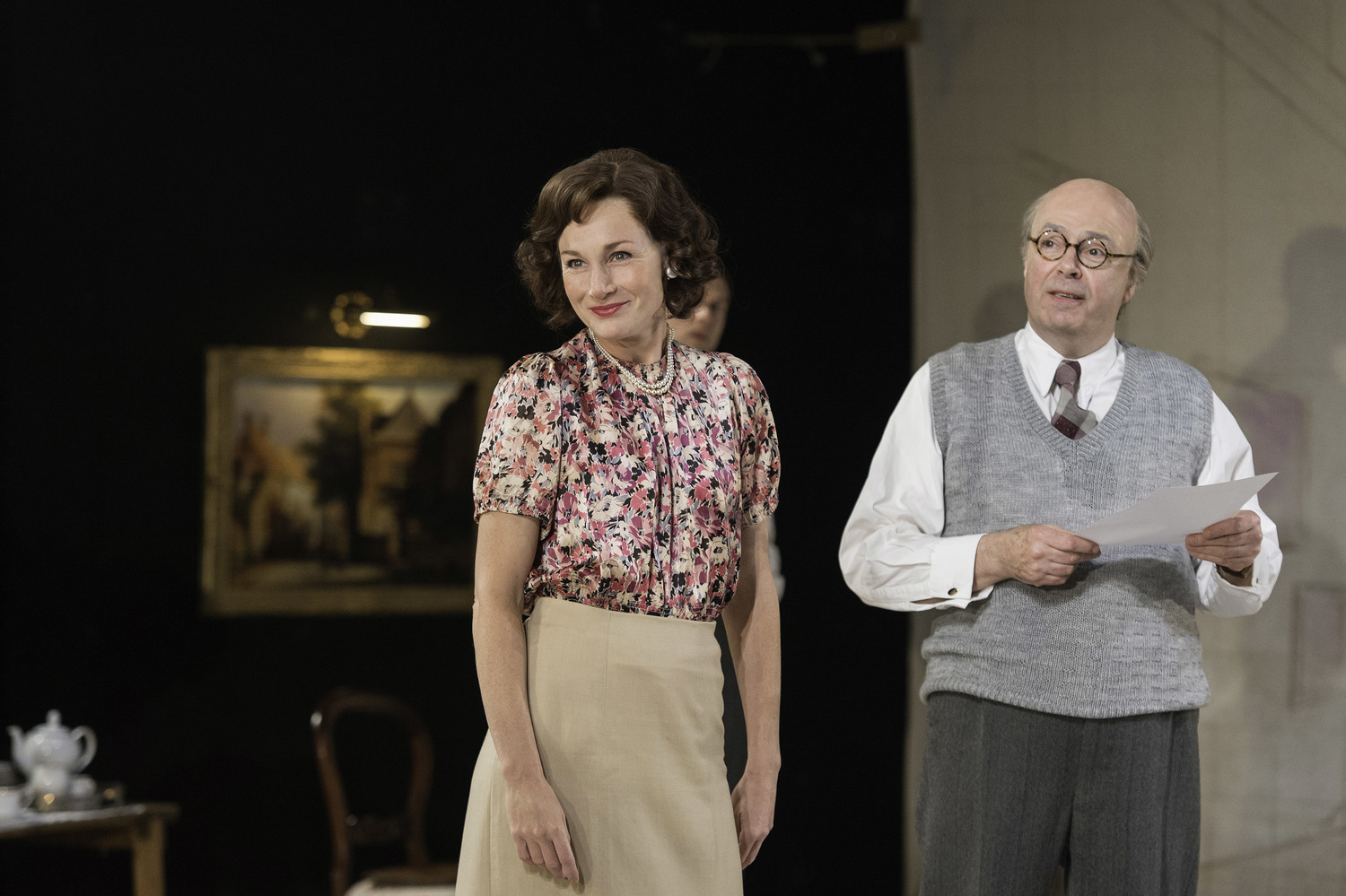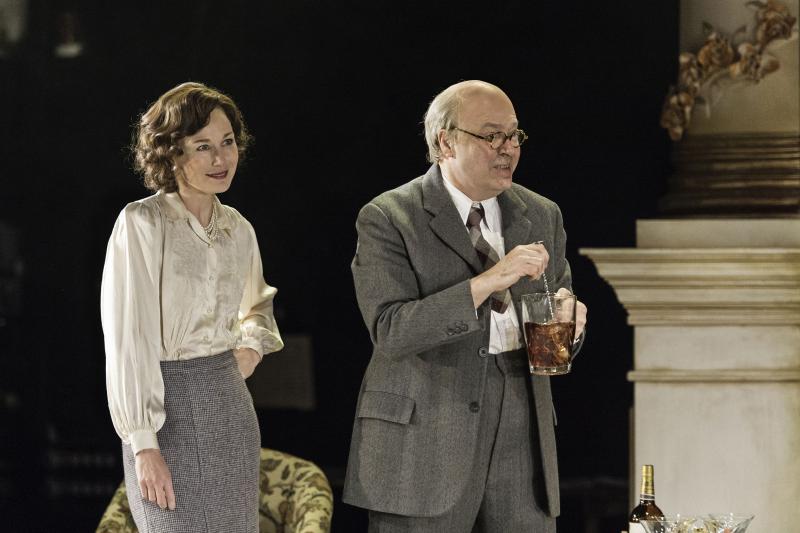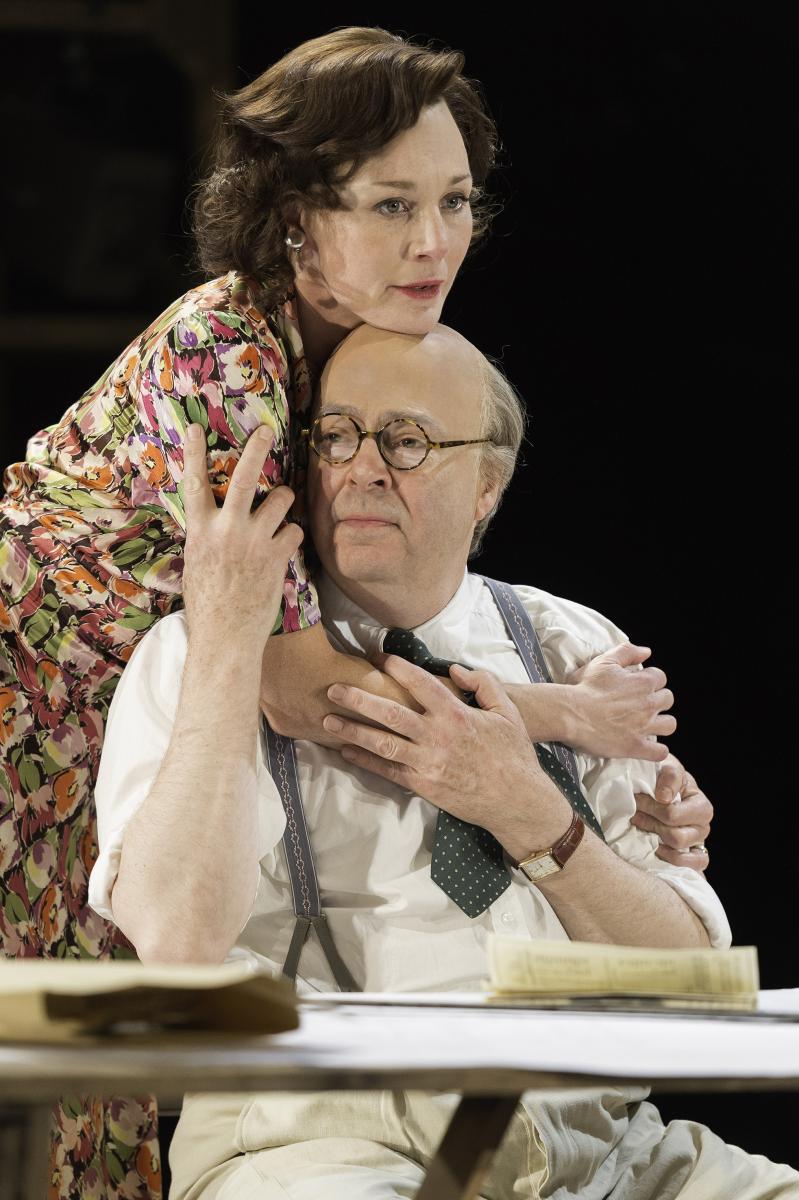Interview: Nancy Carroll Talks THE MODERATE SOPRANO
|

in The Moderate Soprano
The Moderate Soprano opens in the West End this week, two years after the production's run at Hampstead Theatre. David Hare's play tells the story of the passion and the people behind Glyndebourne, including the soprano herself: Audrey Mildmay.
In this two-part series, we speak to the cast and creative behind the production. Taking on the titular role, Nancy Carroll shares her thoughts on returning to the show and the role after two years.
What was your first experience with theatre?
Well I grew up in South-East London, so for me my resounding memory was always going over Waterloo Bridge and looking at the National Theatre. Those places looked like Mecca to me - I had such a strong instinct that I wanted to perform in some way.
And the first show I ever went to was Guys and Dolls at the National, with my grandparents. That for me was the big one: I was sat in the auditorium and I had this overwhelming feeling that I wanted to be on the stage and not watching it.
And what was that journey to then becoming an actress?
So from then, I knew what I wanted to do. But it actually overwhelmed me for many years. I would make my way into those sort of environments, but I was still quite shy of them. I would never be the one pushing to be at the front. But I wanted to be in those rooms and have those experiences.
And so I did more and more at school, and I had this amazing teacher called Mrs Chivers at Alleyn's. Those early, formative experiences stay with you forever, and she always treated me with a sort of seriousness.
But I think it was just that thing of always being drawn to it. So when I went to university and studied Fine Art at Leeds, I ended up doing more theatre than work! And so I just kept being drawn back into that world of theatre: it continues to call you back if you stray too far.
You've worked across stage and screen, throughout your career. Do you have a particular favourite medium?

in The Moderate Soprano
I think it can take a while to feel confident in front of a camera, but the detail of that work becomes your friend. It becomes a joy to play with the intimacy of being in front of the camera, and to know you're only partially responsible for the outcome. But it is a different skill. It comes from the same place inside you, but you have to monitor it as it leaves you.
Now having come back to the stage, having done a big block of television, you can experiment. And it's the same the other way, going from the stage back to the screen: you immediately have to stop your muscles doing too much. But then sometimes it can inform the work you do and make you braver.
I don't really have a favourite. I know where I feel comfortable in terms of being in a company. And I think if you're a theatre beast, that's where you're happiest.
And you're now about to return to the stage and a production. How did you originally get involved in The Moderate Soprano?
Well, I was sent it with a view to auditioning. I've always been a great fan of David Hare's work, and at that point I didn't know that Roger Allam was playing John Christie, and I didn't know Paul Jesson was up to play Dr Fritz Busch, both of whom I really admire.
But it was because of Jeremy Herrin, a director that I admired a lot, the meeting we had had two and a half years ago and David Hare's wonderful play.
Can you tell us about the story and the role you play?
I was intrigued about the idea of playing a part that jumped two time zones. You first meet Audrey in 1952 and then you see her again in 1934, and once the audience understands that that's what the play is about, we then jump back and forth throughout.
It's a memory play, that's how our designer Bob Crowley describes it. That seems to describe it perfectly, in as much as it's like a stream of consciousness. By the end of the play, you understand the whole story; but you do have to stay with it as an audience, to witness the jigsaw whole.

in The Moderate Soprano
And it's based on a true story about the beginnings of Glyndebourne?
Yes. It's a really fantastic, true story about brilliant people who existed, whose story needs to be told.
When I first read it, that was an exciting prospect. Telling this interesting tale about these three men who were inadvertently given a safe haven from Nazi Europe. But it also had elements which scared me in terms of how would I perform them. And I think that's quite an interesting place to start...not that I always want to be scared!
But in this particular case, I had to admit to myself that any stumbling blocks were my fear and not a fault of the play. It was Jeremy who convinced me that that was a good place to start my rehearsal process, rather than a bad one. And he creates a room in which anything is possible: nothing you say is a waste of time and nothing you say is ridiculous or inappropriate.
What is it like re-rehearsing this production, and returning to it?
It's an interesting process. I've never done a revival before - I took over once in a revival, but then I was the newbie so that was a different thing. But to come back two years later, that's a lot of life to happen between one version and another.
And we've also got three new actors and they haven't done it before. So we're finding a rhythm with them, together. And I think that's a really exciting place to start. So although it is a revival, it doesn't feel entirely as though we're repeating ourselves, only that three of us we have had the privilege of having performed it before and that's a fantastic place to start.
There are always things...it's always the case on the last night of any show that you think, "That's how I should have done it!". So it's a really lovely experience to be able to come back and explore those feelings.
Is there anything in particular you're interested in exploring with your character this time round?

in The Moderate Soprano
We are changing all the time, mentally we're changing according to whatever life throws at us. So I'm not the same person I was two years ago.
Whether I like it or not, I probably couldn't give the same performance as I did then. I'm older and more scared of getting older, so I think all of that story of Audrey struggling with an early death and mortality and pain and leaving family is more palpable.
Being surrounded by life at full thrust as she dwindles away, that's very much a theme of the play: you cling to life.
An extraordinary part of art in any shape or form is its immortality. So to be a creator of art, facing your own mortality is raw and tragic. And David has put that on the page so beautifully. He's a truth-teller and it's a joy to say the words that he's written.
Finally, what can audiences expect from The Moderate Soprano?
The play for me is about making sacrifices to make art, it's about the joy of existing in a European community as ours defiantly threatened. And the joy of forming a company of souls creating something extraordinary. Those are all incredibly important stories in addition to forming Glyndebourne, they are the bigger human stories.
And I really hope we are creating something that an audience can lose themselves in. To sit there and allow the story to happen in front of them. It will unfold so they can't form the whole picture until it finishes unexpectedly and poetically.
It is glorious, funny, heartbreaking and necessary. Ultimately it is a love story, a true love story, and who doesn't love a love story!
The Moderate Soprano at Duke of York's Theatre, 5 April-30 June
Photo credit: Manuel Harlan
Comments
Videos

